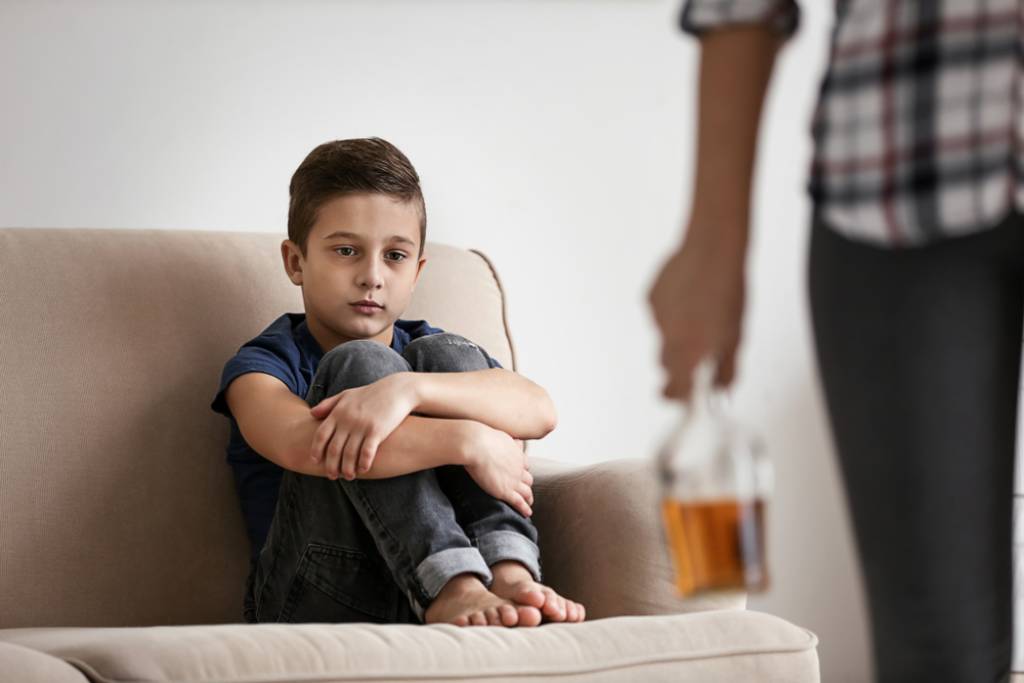Table of Contents
Addiction can create a complex and challenging journey, leaving lasting impacts on those it touches. Among the most vulnerable are the children of addicts. They are innocent souls caught in the middle of a struggle that goes beyond one person.
As we explore this issue, our attention shifts to the crucial role of support. This blog post will give you guidance on how to nurture resilience in children who are raised by someone struggling with addiction. We’ll cover the tools they need to take control of their future and break addiction cycles that may impact them.
The Effects of Addiction on Children
Growing up in a household affected by addiction takes a deep emotional and psychological toll. It leaves lasting imprints on young minds forced to navigate this challenging terrain.
Children of drug addicts often find themselves caught in the turbulent currents of their parent’s struggles, grappling with a complex array of emotions.
These children often feel emotions such as:
- Anxiety
- Fear
- Depression
- Guilt
- Shame
- Loneliness
- Confusion
- Anger
These emotions can shape their worldview and influence their perception of self. The instability that comes with addiction can disrupt the fundamental sense of security crucial for a child’s healthy development.
Also, the emotional pain experienced by these young hearts can go beyond the immediate situation.
Research indicates that children of addicted parents are more likely to face mental health problems, like anxiety and depression, as they try to make sense of their lives concerning societal norms. It’s not only about the present; it affects their future too, making it harder to build healthy relationships and handle adult challenges.
Are Children of Addicts More Likely to be Addicts?
It’s been suggested that kids with addicted parents might be more prone to substance use disorders (SUD), due to genetics and their surroundings.
Genes can make them more susceptible while growing up in an environment where substance abuse is common can result in learned behaviors. According to the Addiction Center, “Children with alcoholic parents are 4 times as likely to engage in excessive drinking at some point in their life.”
The stress, trauma, and coping strategies observed in a household affected by addiction can also impact a child’s future relationship with substances. NCBI states, “In surveys of adolescents receiving treatment for substance abuse, more than 70% of patients had a history of trauma exposure.”
Addictive traits in children can include:
- Behavioral changes, such as becoming argumentative or isolating themselves
- Red eyes and chronic health complaints
- Changes in eating or sleeping patterns
- Loss of interest in school, dropping grades, skipping classes
- Feelings of loneliness, depression
- Harmful or risky behaviors (e.g., breaking things, vandalism, stealing)
- Self-harm (cutting their bodies)
- Compulsive behaviors, eating disorders
- And more
Helping these children starts with acknowledging and addressing the scars they carry. It’s the vital first step in providing the support they desperately need to conquer addiction’s challenges.
Nurturing Resilience in Children
When faced with tough times, resilience becomes the foundation of a child’s ability to not only survive but thrive.
Resilience, defined as the capacity to bounce back from difficult experiences, can be nurtured, especially in supporting children of addiction. It’s important to acknowledge that these young individuals have inherent strength that, with the right help, can empower them to overcome the challenges they face.
The Importance of a Supportive Environment
Building a supportive environment goes beyond the immediate family and includes communities, schools, support groups, and more.
Developing resilience often begins with the presence of reliable adults in a child’s life. Whether it’s a teacher, mentor, or family friend, these connections offer crucial emotional support and guidance for a child’s growth.
Positive role models and stable, caring relationships can act as anchors, offering the stability and guidance that may be lacking in their primary familial setting. When a child feels understood, valued, and supported, resilience can take root and thrive.
Equally important are the relationships formed with peers. Peer support brings a feeling of belonging, breaking the isolation often experienced by children of addicts. These friendships provide a unique understanding, lessening the feeling of being alone and fostering a community of shared strength.
Breaking the Cycle of Addiction
To break the cycle, it’s important to deeply recognize the generational patterns that run through families impacted by addiction.
The roots of these patterns are often connected to trauma, coping mechanisms, and learned behaviors. Understanding the roots plays a key role. Families and individuals need to face and acknowledge these patterns in order to stop the automatic passing down of destructive behaviors to the next generation.
Breaking the cycle of addiction is tough, and it doesn’t just end in childhood. It carries on into adulthood, affecting adult children of drug addicts too.
As we grow up, the way we were raised still influences our decisions and actions. So, it’s vital to acknowledge and tackle the specific challenges faced by adult children of addicts if we want to break this cycle for good.
Overcoming Challenges in Seeking Help
The stigma and shame surrounding addiction can get in the way of people seeking help. We need to break through these barriers by challenging commonly held misconceptions about addiction and creating an environment where open conversations are encouraged. When we make it normal to seek help for addiction, we empower individuals and families to break free from the burdens of secrecy and shame.
Another critical barrier is the often limited access to resources and support. This can include financial constraints, insufficient treatment options, or a lack of awareness about available services.
Breaking the cycle requires a commitment to expanding access to affordable, evidence-based treatment, counseling, and community support programs.
Empowering Change With Infinite Recovery
Are you ready to make a positive change in your life? Get in touch with us today. Whether you need support for yourself or a loved one, we can help contribute to the bigger cause of breaking the cycle at Infinite Recovery.
Your dedication, no matter how small, can have a big impact in creating waves of positive change. Let’s create a strong base of support, understanding, and strength to shape a better, healthier future for everyone.

















